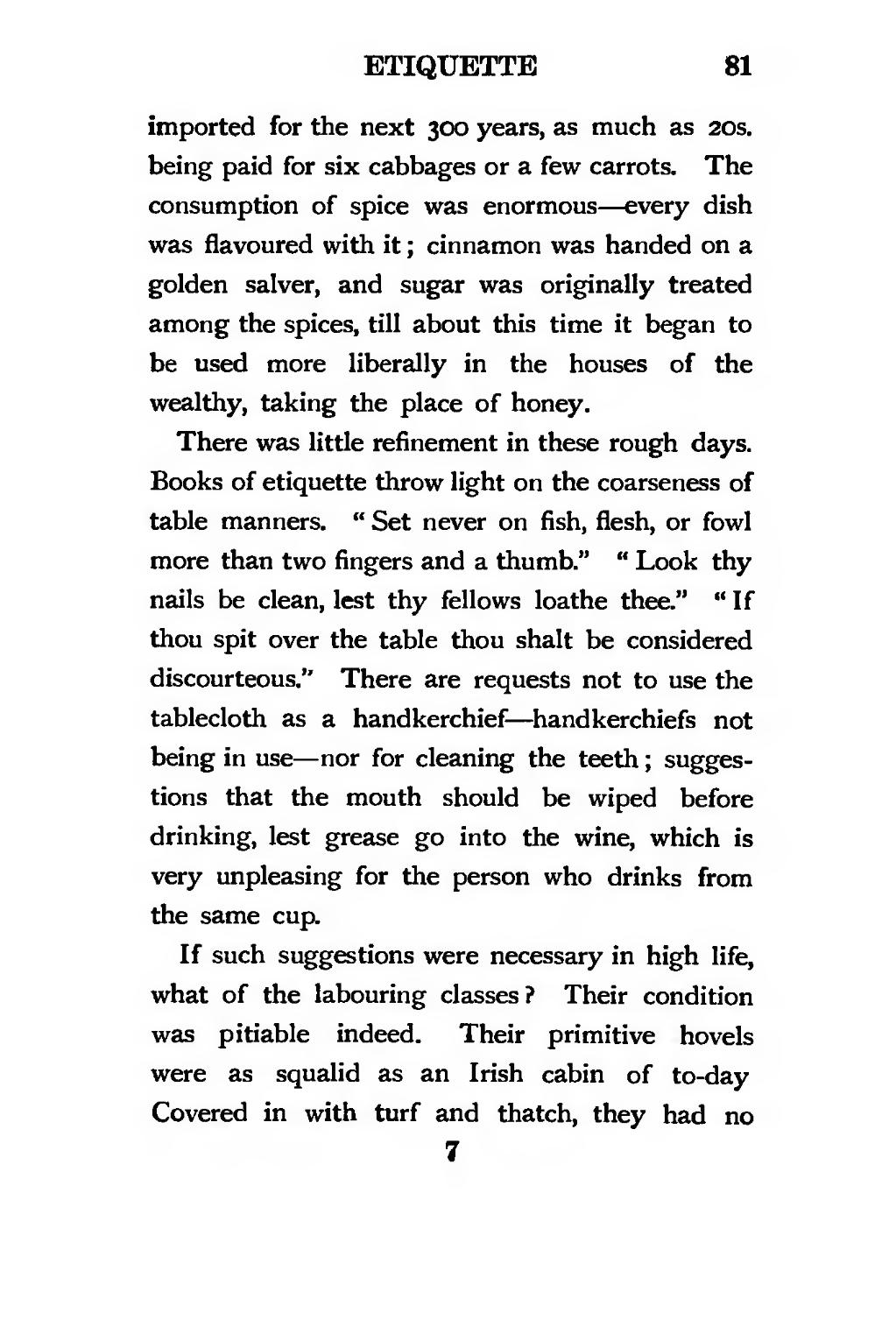imported for the next 300 years, as much as 20s. being paid for six cabbages or a few carrots. The consumption of spice was enormous—every dish was flavoured with it; cinnamon was handed on a golden salver, and sugar was originally treated among the spices, till about this time it began to be used more liberally in the houses of the wealthy, taking the place of honey.
There was little refinement in these rough days. Books of etiquette throw light on the coarseness of table manners. "Set never on fish, flesh, or fowl more than two fingers and a thumb." "Look thy nails be clean, lest thy fellows loathe thee." "If thou spit over the table thou shalt be considered discourteous." There are requests not to use the tablecloth as a handkerchief—handkerchiefs not being in use nor for cleaning the teeth; suggestions that the mouth should be wiped before drinking, lest grease go into the wine, which is very unpleasing for the person who drinks from the same cup.
If such suggestions were necessary in high life, what of the labouring classes? Their condition was pitiable indeed. Their primitive hovels were as squalid as an Irish cabin of to-day Covered in with turf and thatch, they had no
7
